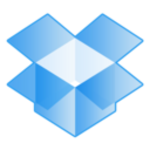We use the solution for storing data but don’t use Synapse to store data directly in it. Instead, Azure Synapse Analytics is utilized to analyze and process data in Data Lake Storage. Data Lake Storage is a large, scalable solution that handles extensive volumes of structured and unstructured data rather than a direct disk storage system.
In Azure Data Lake Storage, the tool we're using, Spark, handles the management, storage, retrieval, and organization of data. Spark employs its algorithms to abstract the underlying complexities. We don’t work with a large amount of data. If we were to handle larger datasets, we would need to focus more on optimizing storage and retrieval processes, as the efficiency of these operations would become more critical.
The version was a bit outdated compared to the newer Microsoft Data Fabric offerings. For instance, the directory services are already available in Data Fabric, so I don't think adding them to Azure Data Lake Storage would be necessary. For example, Snowflake, a cloud data analytics platform, adds its capabilities and optimizations to Azure Data Lake Storage, such as improved performance or easier integration with SQL. Compared to other similar services, Azure Data Lake Storage remains very competitive.
I have been using Azure Data Lake Storage for over a year.
Azure is a stable platform. These interruptions are relatively rare and usually last only a few minutes. It is good for data-oriented applications that don’t require continuous online processing.
These brief outages do not significantly impact the quality of service. We haven’t experienced major stability issues with Azure Storage.
Any issues are handled by the team responsible for managing the platform.
We primarily use Azure Synapse, which integrates with Azure Data Lake Storage. Synapse leverages the storage provided by Data Lake Storage, so both are part of the Azure ecosystem but remain distinct services.
Another integration involves SQL Server, which serves data to various consumers as an SQL database. The main consumer is Power BI, which provides extensive reporting capabilities. Additionally, Azure Functions integrates with internal systems at the client’s end.
It is a cost-effective solution.
Using a cloud platform generally allows for flexible capacity management, meaning you can use and pay for resources only when needed. This is particularly useful for our customers, who can run Spark clusters in serverless mode. They only pay for the time they use the service, which is cost-effective since they don’t need constant access to high power and typically run jobs for shorter periods, like half an hour.
It is available continuously and supports data archiving. However, since the current volume of data is not large, the client doesn’t need to focus on archiving or optimization. As their data grows and becomes more historical, they may need to optimize storage and archiving practices.
The other team manages the integration tasks. The process is straightforward as long as the systems, functions, or other components interact with external systems. The ease of integration can depend on the intensity of the integration requirements.
Overall, I rate the solution an eight out of ten.













